Social media has hacked the human psyche (this article is about hacking it back)
I’ve been looking at my relationship with social media over the last year or so, feeling somewhat perplexed that I may have been tumbling down a black hole. It feels like somehow it scrambles my brain, makes me feel less human, and a bit more brainwashed.
The fear of missing out on things, the need for connection and social approval are deeply etched into the human psyche. I have this eerie feeling that social media exploits us by tapping into these human needs – psychological vulnerabilities that were designed by nature at a primordial level for human survival. The human mind is ripe for exploitation by social media (which now, is basically a huge corporation, dependent on exploitation). In layman’s terms, social media and other less healthy online applications are harvesting human attention. Our psyche has been insidiously hacked (YES! they know exactly what they are doing) and is being controlled in ways that a lot of people are not aware of (although if we have the courage, to be honest with ourselves, we’ll immediately notice the symptoms in abundance). If you are fine with that, then there isn’t much need to read on. If that bothers you in some way, then let’s explore.
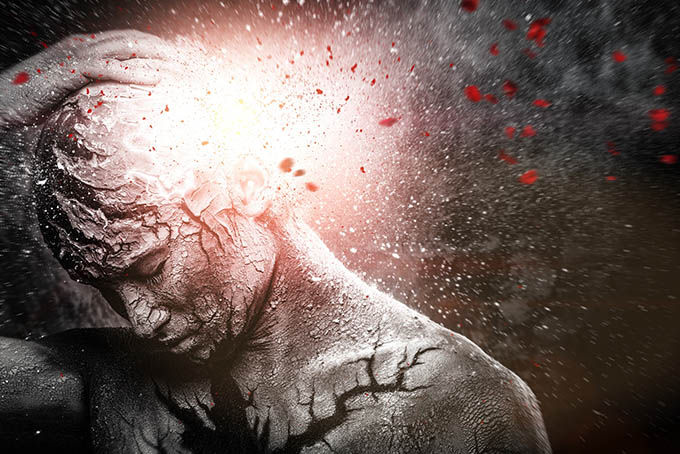
Is a healthy balance possible?
First of all, let me say that despite a mild utopic fantasy of returning back to the wilderness, I am not against technology. I’ve taught myself several professional skills (such as book publishing, film making, and graphic design) via online videos and in the absence of funds for a therapist, I cured myself of cPTSD! So I am certainly not knocking online resource sharing. Sharing information, passing on insight and meaningful connection can be valuable activities for personal growth. There must, however, be a healthy balance. The bottom line is this: if you turn a blind eye and do not have a plan of action, then you will be swept along in blissful ignorance.
Over the past year, I’ve read various books and listened to podcasts which have left no doubt in my mind that social media is engineered to addict us in the same way that slot machines are designed to keep people hooked. Take a pause and read that sentence again! Social media is engineered to addict us in the same way that slot machines are designed to keep people hooked. Our collective, ‘sociably acceptable’ addiction is lining someone’s pockets.
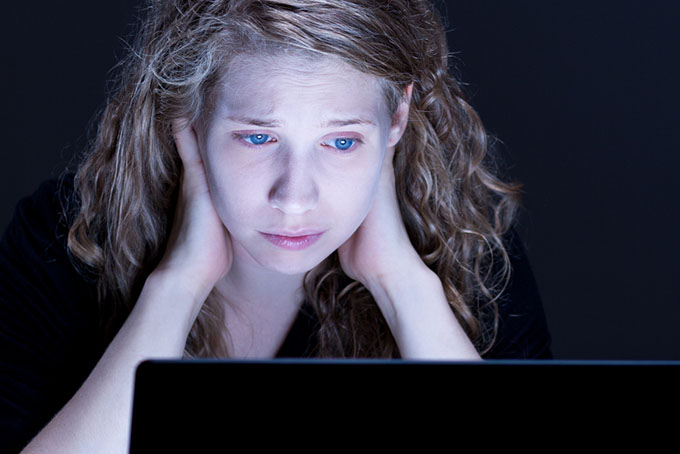
I did an experiment with myself over a few months…
I made a commitment to consciously noticing myself, my feelings and my thoughts when using social media. In fact, I observed myself for months.
I began to notice ongoing background anxiety, tightness in my head, an unhealthy preoccupation with checking my social media feed, compulsive ‘checking’ for feedback. I also observed a social media-induced isolation and loneliness, and diminished creativity levels.
I then noticed that ALL symptoms rapidly dissipated when I either stopped using social media for more than 24 hours OR used it in a very restricted way.
My mind tried desperately to convince me that…
- I would miss out on stuff
- I would lose friends
- My website would fail
- “I will miss out on stuff”
Fear of missing out – on events, on the latest news, what everyone else is talking about. I’d like to think I was ‘above all that’ but realised that I was not, because, the funny thing is – I am human!
Not only did I find that I didn’t miss out on anything important by seriously restricting my use of social media, but I noticed that my life experiences feel much richer without being drowned out by unnecessary internet. I can stay up to date with people via email, phone or in person. In fact, I can do most things without social media. Restricting myself to specific guidelines on how I use Facebook (which is the only social media I still use) has meant that within a few days, the wiring in my brain literally started to change. I started to feel bored with Facebook and wonder why on earth I’d spent so much time there in the first place. I am currently giving myself an allotted time (say maximum 10 minutes once a day) – I’m finding increasingly that I don’t even need that time. My next exploration will be quitting altogether. - “I will lose my friends if I quit social media”
Hahaha – one of those clever, nonsensical tricks that our brain will play with us. I’ve noticed that the ‘real’ meaningful connections that I have are always happy to connect via other methods (i.e. in person, on the phone or via email). Whilst we might get the sense of community through social media, the friendships that do not or cannot exist beyond that platform are probably quite shallow in the first place. I know that if I deleted my FB page tomorrow, then anyone I have a genuine connection with would stay in touch via email, phone or in person. - “My website will fail without social media”
No – actually it won’t and it doesn’t! My website thrives and gets hardly any clicks back from social media (despite my large social media subscriber base). Anyone really interested in what I am offering engages via my website. If anyone has something valuable or of interest to share then they email me or make a comment directly on my site. I do however value my loyal Facebook page visitors who engage there regularly (which to be honest, is only really a small handful of people out of 50K subscribers). I feel a genuine kinship with these folk and enjoy connecting, sharing and hearing from these beautiful people – for this reason, I decided (for the time being) to keep my Facebook page. The irony is that the less I use social media, the more traffic I seem to get to my website. If that’s not a sign, I don’t know what is.
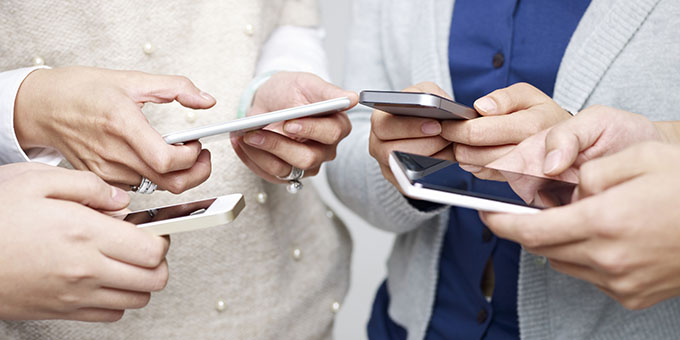
Guidelines to help you use social media responsibly
Guidelines, I actually mean RULES, ugh! Because when it comes to social media, it is so controlling that you can not be half-arsed about it. I personally do not like the idea of rules, yet with any unhealthy pattern that is hijacking the human psyche, rules can be highly beneficial (perhaps essential). Therefore, in this case, let’s bring ’em on!
Rule #1 ONLY use social media on your laptop
Take social media (and other unnecessary apps) off your phone. This will instantly help to eliminate compulsive checking and scrolling. If you want to use social media, do it on a laptop or a desktop computer. It might be difficult for the first few days, but stick with it and your brain will start to rewire itself with healthier patterns. A laptop only means that I am unable to check on impulse as it doesn’t quite have the same addictive components that are embedded in the smartphone apps. In addition, the only way I can access Facebook messenger is through my laptop, so it sometimes takes me a while to respond to messages (but to be fair, most people never contact me through messenger anyway).
Rule #2 Have a STRICT time limit on social media
I have set myself times every week for posting and engaging on my social media kitchen page (mainly recipes, articles or inspiration of sorts). This does not take long at all (contrary to my previous beliefs). I am currently allowing myself to check in for a maximum of twice per day (with no more than 10 minutes per day). I find this super easy if I haven’t posted anything and feel almost no need to check-in. However, if I have posted an article up, I find it difficult not to check-in a little more (arghhhh!), so I am working on the best code of practice for that so that I don’t end up getting distracted and sucked down a black hole whilst attempting to engage with a particular post. Even going on for a minute feels like social media poison seeping into my veins that take a while to flush out. I don’t have restrictions on my YouTube usage (it doesn’t feel like I need to as I can self-regulate videos for educational purposes – but one to be mindful of all the same).
Rule #3 Specify a purpose to yourself “why am I going on?”
Make a bullet point list of healthy reasons that you are going on social media and be sure ONLY to go on for those reasons. For me, this mainly consists of…
- Checking out local events (or posting a local event of my own i.e. vegan potluck or board game night).
- Posting recipes and articles on my kitchen page and having meaningful engagement with readers.
- Responding to messages on FB messenger (I don’t get many messages, because people who know me don’t tend to communicate there).
- Posting a photo of somewhere beautiful that I’m hiking on my personal page – because I want to share a bit of the magic with my friends and family how our precious Earth is (not sure how necessary this is, to be honest).
Rule #4 The NO SCROLLING rule (I need to work on this more)
I still find it difficult not to scroll at all, and catch myself impulsively doing it despite my best intentions – so this is a work in progress for me. I have, however, set myself a no scrolling rule. A subconscious, conditioned behavior that I am watching closely. The wiring in my brain STILL says “must scroll, must scroll, something, anything, don’t care if its the 7-day weather forecast, must scroll something”. I am currently OK with this as long as I can self regulate and scrolling doesn’t last more than a very brief period (like 60 seconds). I do usually engage with something meaningful or follow an article back to its source and then sign off (but I am probably kidding myself, so results are inconclusive for me at the moment).
Rule #5 Define your screen time and social media rules
How many times have you gone to check one little thing on your feed, then emerged from your screen 30 minutes later, not having a clue what the hell you just spent half an hour doing?
If you don’t define your rules, then you are almost guaranteed to get sucked back into the spinning vortex of lost time. Decide how often you are going to check social media and for how long. Set a timer (no kidding, do it, this is effective and revealing!).
If you binge-watch video episodes, then define your video screen time too. Decide how many videos you want to allow yourself to watch per week. If you watch videos for educational purposes and inspiration then you might not need to cut back. If you have a tendency to binge-watch the latest Netflix series, then you will probably want to stick to one episode at a time and a fixed amount per week. Let’s face it, binge-watching is an addiction and it is not healthy. Watching more than an hour or two of TV per day is an addiction. Same with video games. If you set your rules and stick to them, you will soon start creating healthier patterns in your brain.
Rule #6 Make a list of all the things you do (or want to do) in your life which do not include a phone or a screen
If you reduce your use of social media, you will probably find yourself glaring into a gaping void. One thing that the human psyche cannot bear is a vast empty vacuum. You are not defective – you are human and this is normal. You have plenty of time in life to learn to love stillness (in fact add that to your list), yet in the meantime, it’s super important to follow this step if you want to succeed in reclaiming your psyche from the corporate jaws of social media.
Humans are biologically wired for activity, so it is important that you have a plan of action, this will help ensure that you don’t get sucked immediately back into the black hole that you are trying to rise out of.
Think creativity, arts, singing, dancing, sewing, hiking, gardening, learning an instrument, learning a new language, sports, yoga, meditation, reading. Make a list and contemplate it. Put things into action and make them part of your daily/weekly rhythm. You will feel so much better for it.
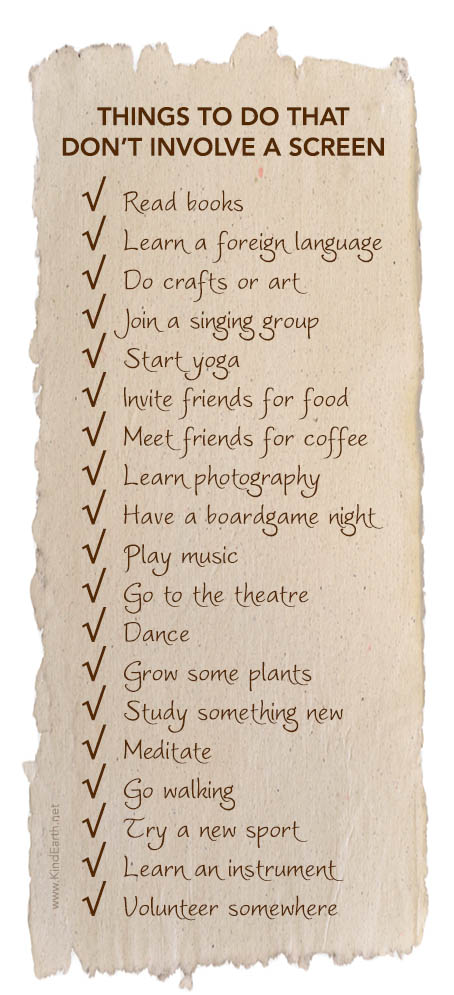
Rich Roll speaks with Cal Newport about “Digital Minimalism”
I recommend this podcast (here’s the YouTube version). Cal Newport is a researcher and professor from Georgetown University in the USA. He has an insightful mind full of knowledge on the topics above (and a whole lot more). I’ve read his book “Digital Minimalism” a couple of times and found it super helpful and inspirational…
Can we use social media in a healthy way?
That is the question. For me, this is an ongoing exploration. I don’t know the answer. I do, however, suspect that social media is designed to addict, designed to hijack the human mind which opens up lots of questions worthy of consideration. I am leaning towards quitting altogether.
Please do comment and share your thoughts and experiences in the comments below – I’d love to hear from you (and pass on this article to anyone who might find it of help).
Kindest Blessings and Love
Anastasia

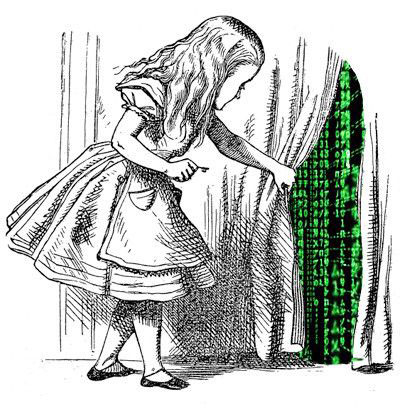
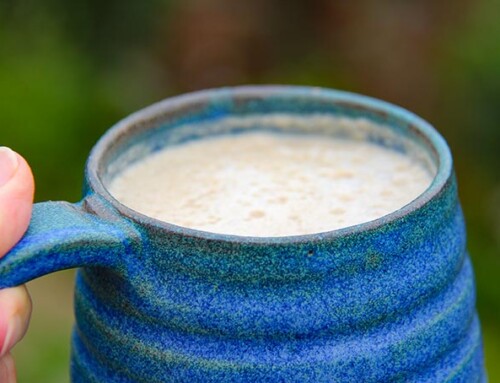
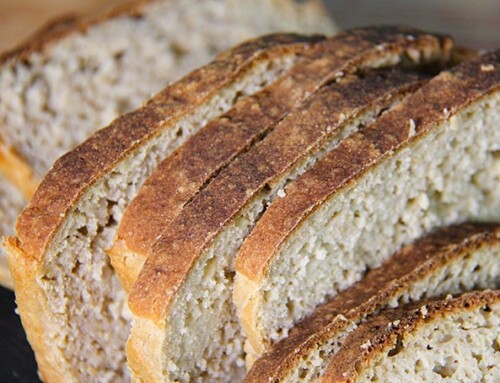

Absolutely agree I have just deleted Instagram from my life so boring and does my head in. 🙂 I act and teach acting so have to use social media a bit. I only use twitter now as I can write on this and retweet. Facebook business page linked to my website. Personal Facebook I struggle with a lot of ego flying around but keeping it for good friends and interests like yourself. I meditate and write too so they are not going to hypnotise me with their black hole ♥
Yes stay empowered!
Thank you for sharing your insights! I have become conscious lately that I have a constant nagging anxiety while on Facebook. I have also experimented with Facebook fasting and my whole body calms down when Facebook posting or checking is not a large part of my day. I feel most people have lost their ability to interact in the real world because of our screen addictions. Everyone acts so awkward around one another. Smiling at a stranger is a major accomplishment these days (not for me, though 😃). Why? We are here to connect 💫 Social media started with that idea, but ironically we lost each other in the process. Where’s the actual hugging, not sending a virtual hug? Where’s the actual belly laughing together over something funny, not typing lol alone without having uttered a single sound? What about holding our child’s hand instead of our selfie stick?
We’ve been bombarded with a sea of instant information, and we’ve gorged on it without restraint so far. But some are stepping back, willing to analyze its effectiveness and assistance in our lives vs the crutch it has become and perhaps its accidental disconnection from really interacting with one another. I’m really looking at it in my life. I will find balance and show others how to do the same. Social media can never replace a kiss on your cheek from your favorite grandma, or feeling a gentle falling snow turn your hair wet as you look up and kiss the white powdery sky. Pictures are not enough. Status updates are too simple for our beautiful complexities! They do not engage all of our senses. They are flat. We have become dependent on them and thus have become flat ourselves. Balance. Let’s find it and all will be well 💜 Social media can be a special extra sprinkle in our lives if we remember to keep it just that~extra, rare, and just a sprinkle ✨
Thank you for sharing Bonnie. I really enjoyed reading your post and found myself saying yes, yes, yes after each sentence. It warms my heart to know that you also have explored watched and noticed these things around you also.
That flatness, whilst so often well meaning, can be so disheartening or even soul crushing. It’s a strange thing indeed. I truly hope that a wave is beginning where others start addressing this also. I appreciate your comment and experience. Thank you!
I came across your site looking for healthy recipes. I read this article because it seemed interesting. It’s been years since I used social media. I used to use myspace years ago. I did get facebook and twitter and I thought they were awful. I don’t know why I took an instant dislike to these things and when I used myspace I just messed about on it for a laugh and noticed most people rarely had anything to say other than basic mundane conversations that went no where. I use the internet for getting recipes and craft patterns now. I told my children that I would happily get rid of it completely. I spend more time having real conversations with my family. I keep getting the idea that the world is mentally sick, but then I look around the internet and find there are still people trying to do things for themselves to make their own lives more positive. It’s hard for me because I live in a run down poor area with mentally ill people, crime, and drug addicts and because I am ill and can’t work I feel stuck in this situation. I am more or less a recluse in my house with my family and I am trying to get myself into a positive mental state. It’s hard but possible and I think social media is just another mental poison. Thanks for yor article it confirms what I thought.
I never joined fb. N thankfully so. My husband has an account but checks it maybe once a year. Out of my 3 daughters, the eldest who is 19 is addicted to instagram. From what i have heard n observed around me….i think fb is losing its charm among. Is it not so yet in the western world?
I find people mock me (like back in school) for not having a.b.c. at fingertips. I carry a shut-off phone for emergencies, do internet in a.m. and p.m. to see about emails. or facebook messages (as many only communicate there; but all know call if immediate response is needed), and maybe a peek at distant cousins’ kids’ events (yawn – but I love their parents ;)) I went on this brilliant ‘hack’ you mention a while ago. I had found my head hurt, my anxiety was sky-high, and my eyes dry. I started to limit internet as I know from film work, the screen flickers constantly even if ‘we’ don’t see clearly. I saw such a difference and wish I could bring friends along. My life-long friend is an addict of the screen. She visited me recently, after ten years of no in-person play, 89% of her time was spent online, ‘sharing’ what she found – and making me look; she also oddly said, ‘I don’t watch TV’ when I suggested a film we could share (like every other time ever), missing the irony that she was glued to a screen, but alone, with me. Or then there’s the new ‘accepted’ social interruption of the cellphone bing: friends getting texts, checking FB, texting back, all while we are at lunch or at a social club gathering! I find it really rude. But, no one else even seems to notice. Can we not have an hour engaged, together? I love this article, and appreciate the email newsletter so much. My younger folks in life, say FB is passe. That’s great. But, they are off on even more maniacal inputs lol <- I laughed aloud as I typed 🙂 Thank you A – xx
Hello Anastasia, just found your website thanks to an old bag of black eyed beans waiting to be used in the back of my kitchen cupboard! I am very interested in what you are sharing with the world and had a good look around your website but am aware that the media is sucking me in when I have a great list of things to achieve today. I am just sending a little note of appreciation to you and will let you know later how the recipe goes down with the family. I am involved in lots of things and working on my future path so am interested in making a connection with you. I have recently completed the Theory U course on EdX. It’s worth a look if you haven’t heard of it yet. This may be a gift to you – and other readers? It is connecting many diverse people around the world. My New Year’s resolution is to trust what the Universe is providing and follow it’s lead…who knows where black eyed beans will take us!
Oh fab – black eyed beans are one of my fave beans (those and black turtle beans) – delighted that they brought you here.
Thanks for tuning in and I do hope that you find some interesting things here.
I’ll check out the course you mentioned and see what it’s about.
Kindest blessings
Anastasia